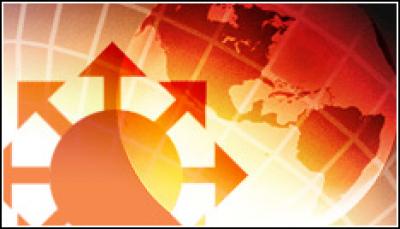BBC Slams Government Web-Throttling Plans

The BBC is prepared to release software that will name and shame ISPs that show preferential bandwidth management
The BBC is working on software for its iPlayer service that will show if an ISP is throttling bandwidth.
At the FT World Telecoms Conference in London, Erik Huggers, BBC’s head of future media and technology, said, “I’ve blogged previously about my thoughts on traffic management but plainly, an open and neutral internet is crucial to the growth of our digital economy. Further, there is a need for consumers to know what sort of broadband package they are buying – or switching to – and the level of service they can expect.”
Prototype Shows Fair iPlay Service
 He then detailed the work of his research and development team in devising a prototype real-time meter that would show how efficiently the company’s iPlayer service was being delivered by a user’s ISP. The degree of bandwidth throttling would be indicated by using a traffic light model of red, amber and green.
He then detailed the work of his research and development team in devising a prototype real-time meter that would show how efficiently the company’s iPlayer service was being delivered by a user’s ISP. The degree of bandwidth throttling would be indicated by using a traffic light model of red, amber and green.
“In addition,” he said, “we propose to work with the industry to discuss the possibility of a ‘kitemark’ to denote levels of different broadband package capability in simple, easy-to-understand language.
“Furthermore, we are ready to engage with ISPs to help reduce network congestion by introducing adaptive bitrate streaming technologies which use the HTTP protocol and can be cached on the ISP networks. We also believe that the industry should embrace and enable multicasting delivery, something we have been championing for many years because it would dramatically reduce congestion for live streaming,” he added.
Standing up for net neutrality
The revelations from Huggers are being seen as a strike against UK communications minister Ed Vaizey’s stance against net neutrality. In an earlier keynote at the conference, Vaizey said that he believed that net neutrality legislation, currently under discussion in the US, was unnecessary and that “light touch regulation” would counter the European Commission’s support of ISP-based traffic management, or bandwidth throttling.
Net neutrality is a hot topic because some ISPs see the preferential streaming of different companies’ Internet traffic as being an additional revenue source. Huggers sees this as a dangerous path.
 “I’m concerned by recent developments whereby ISPs discriminate in favour of certain traffic based on who provides it. In an era of fierce competition, it’s understandable that some network operators might look to gain commercial advantage by charging for content distribution,” said Huggers (left).
“I’m concerned by recent developments whereby ISPs discriminate in favour of certain traffic based on who provides it. In an era of fierce competition, it’s understandable that some network operators might look to gain commercial advantage by charging for content distribution,” said Huggers (left).
The BBC itself is in fierce competition with other entertainment organisations that have deeper pockets and can afford to outbid the state-funded channel for bandwidth allocations. Huggers believes that competition is healthy but cited the swell in terrestrial digital broadcasting as the model for the Internet.
“Freeview [digital broadcasting] is found in 18.7 million homes and you can buy a box now for as little as £30. It has brought the benefits of interactivity and paved the way for next-generation IPTV services. It was the open standards which the BBC, in partnership with the industry, helped develop that broadened manufacturing options and hastened adoption of the medium. I hope that we can bring this experience to bear for broadband,” he concluded.